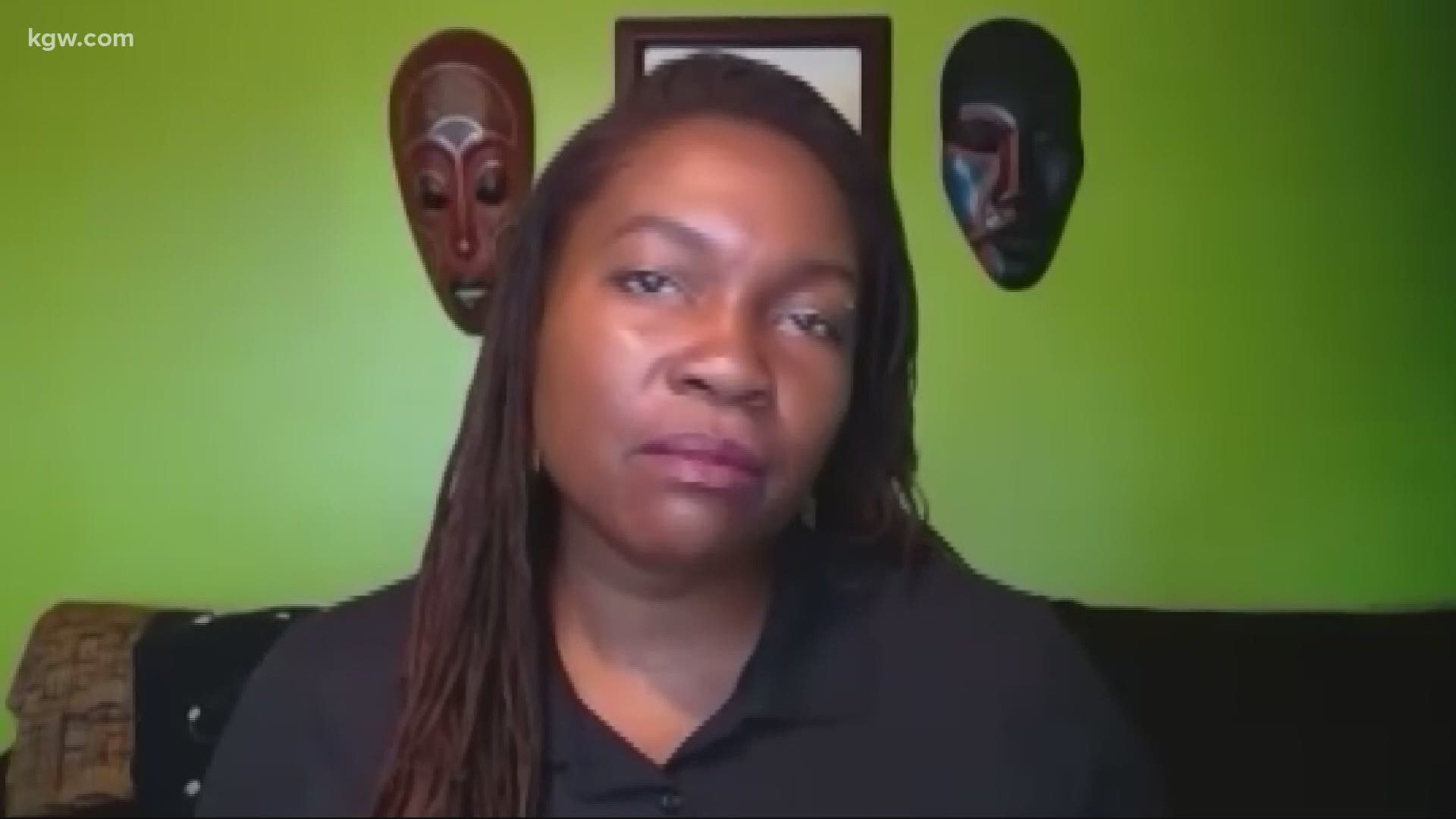PORTLAND, Ore. — News releases and press conferences following last week's special session in Salem served as something of a victory lap for the Oregon Legislature.
“These bills came together very quickly but they will have lasting impact for our state,” Gov. Kate Brown said Saturday.
The bills were, by and large, tied to financial protections amid the COVID-19 pandemic and police reform. The latter issue was pushed to center stage in Salem in the wake of protests over racism and police brutality.
This week, activists want to add some context
“I'm not jumping for joy about any of these bills,” said Nkenge Harmon Johnson, CEO and president of the Urban League of Portland. “I'm pleased, and I don't want to seem as though I'm being negative about them because I'm not. At the same time, I am concerned that some legislators will think, ‘Well, we checked that box so we don't have to deal with that anymore.’”
Six bills tied to police reform in Oregon passed last week.
- House Bill 4201, originally intended to turn police shooting investigations over to the Oregon Department of Justice, establishes a Joint Committee on Transparent Policing and Use of Force Reform. That committee, made up of lawmakers and community members, is expected to make recommendations for new legislation by the end of the year.
- House Bill 4203 bans the use of chokeholds, except when an officer decides deadly force is warranted. It’s worth noting, multiple law enforcement agencies, including the Portland Police Bureau, have already banned the tactic.
- House Bill 4205 establishes a “duty to intervene," requiring officers take action to prevent or report misconduct by a fellow officer.
- House Bill 4207 requires the state to maintain public records on police discipline. Agencies must then check that database before hiring an officer.
- House Bill 4208 bans tear gas, unless police declare a riot and announce they intend to use it, giving people time to disperse.
- Senate Bill 1604 makes it more difficult for arbitrators to overturn police disciplinary findings.
Harmon Johnson pointed out Monday, in a lot of cases, language in the bills was altered or weakened.
“The police get to decide when there's a riot. So, they get to decide when to use tear gas,” she said. “Police get to decide when deadly force is warranted. So, they get to decide when they can choke the life out of someone… that they are outlawed is insufficient. What happens when they are used is a different story.”
“There are folks who really would like to see everything change overnight and that doesn't happen,” said State Sen. Lew Frederick (D-Portland). “And so what we're seeing is the beginning.”
Sen. Frederick is on the People of Color Caucus, the group of Oregon lawmakers who pitched these bills and pushed to get them approved.
He noted lawmakers had a week to get these bills together, adding, for the first time ever, bills tied to police reform had bipartisan, almost unanimous support. In his mind, and in Harmon Johnson’s, last week’s session is a starting point.
Sen. Frederick added the POC Caucus met again Monday to work on more legislation. He said he’s not worried about momentum dying out.
“I mean, when you have people demonstrating in Coos Bay and in Burns and in Lakeview and in Klamath Falls and Hermiston and Umatilla and Ontario and Astoria… I mean, all across the state saying, we need to rethink what we're doing so that people feel as though things are fair across the state. No, I don't. I don't get upset about the momentum,” he said. “In fact, I think we're probably going to see it more as a very strong, positive step across the state and frankly, across the nation.”

